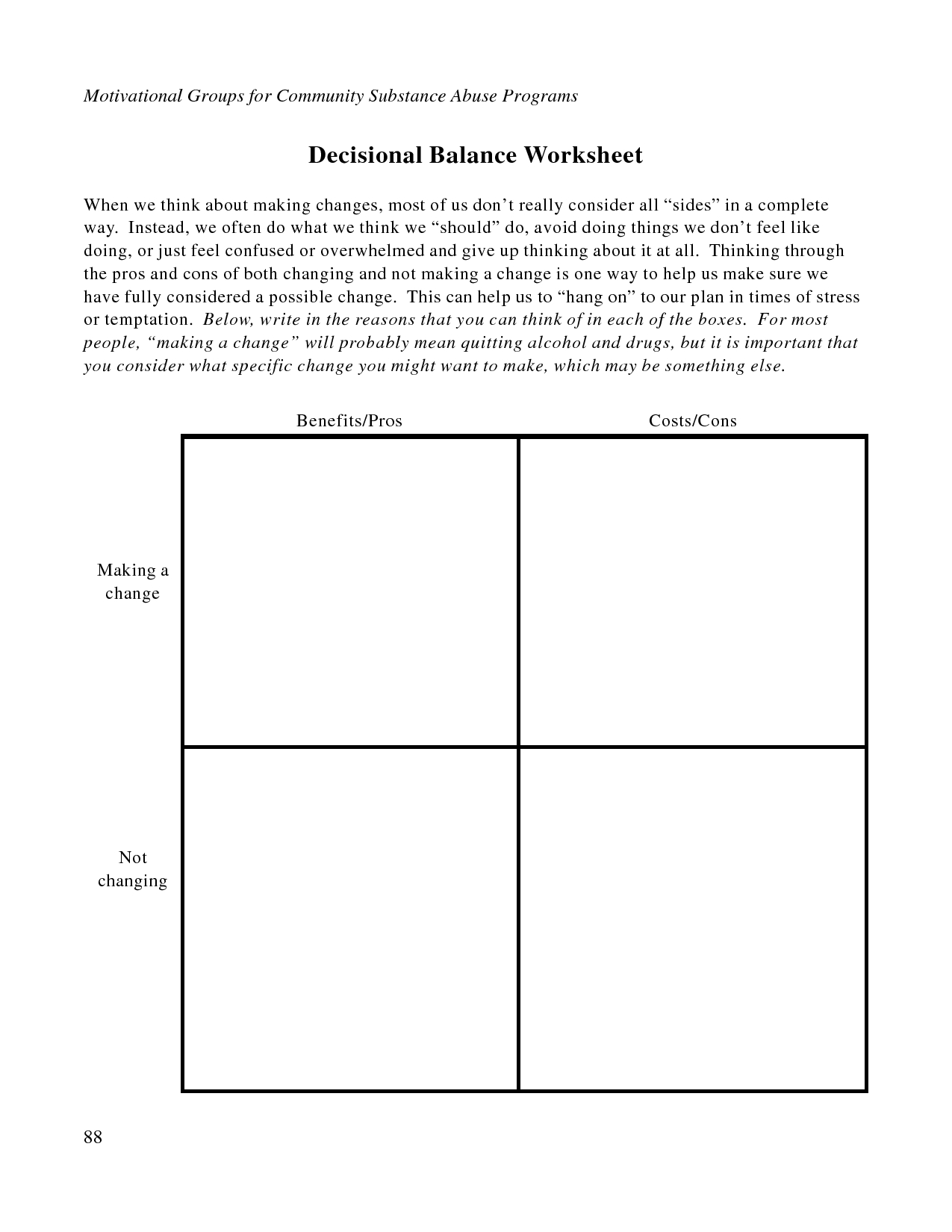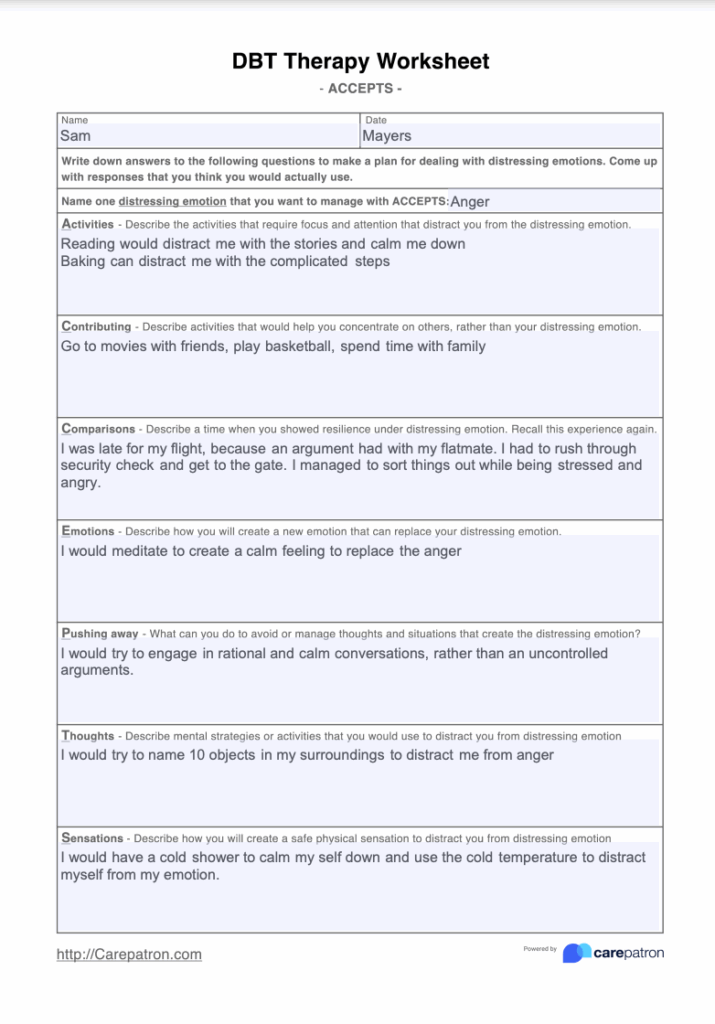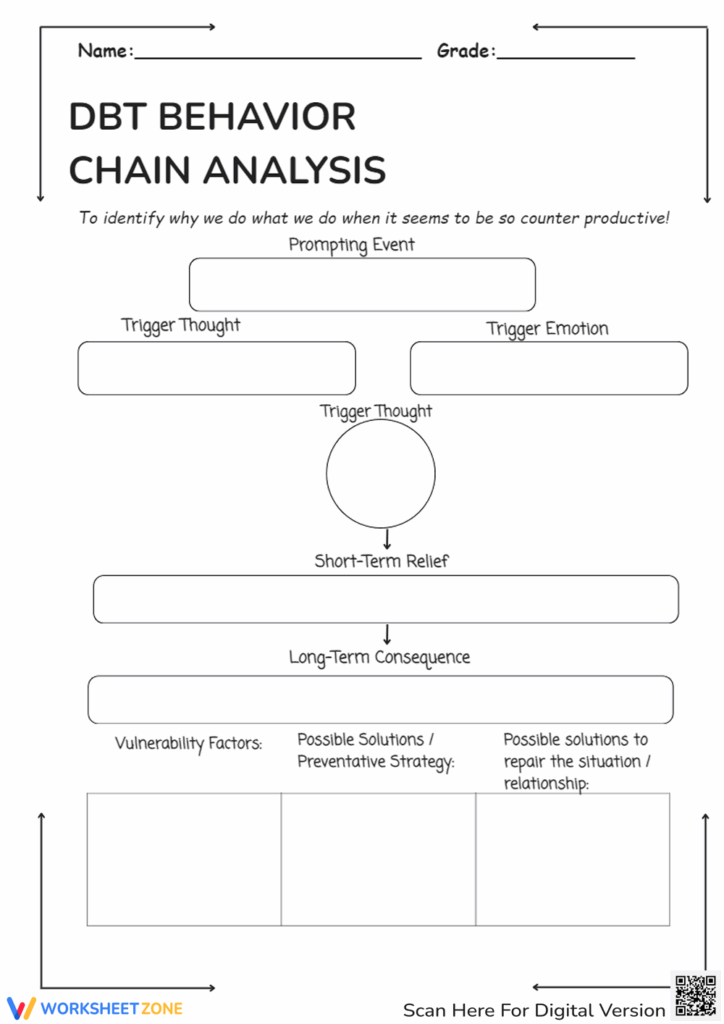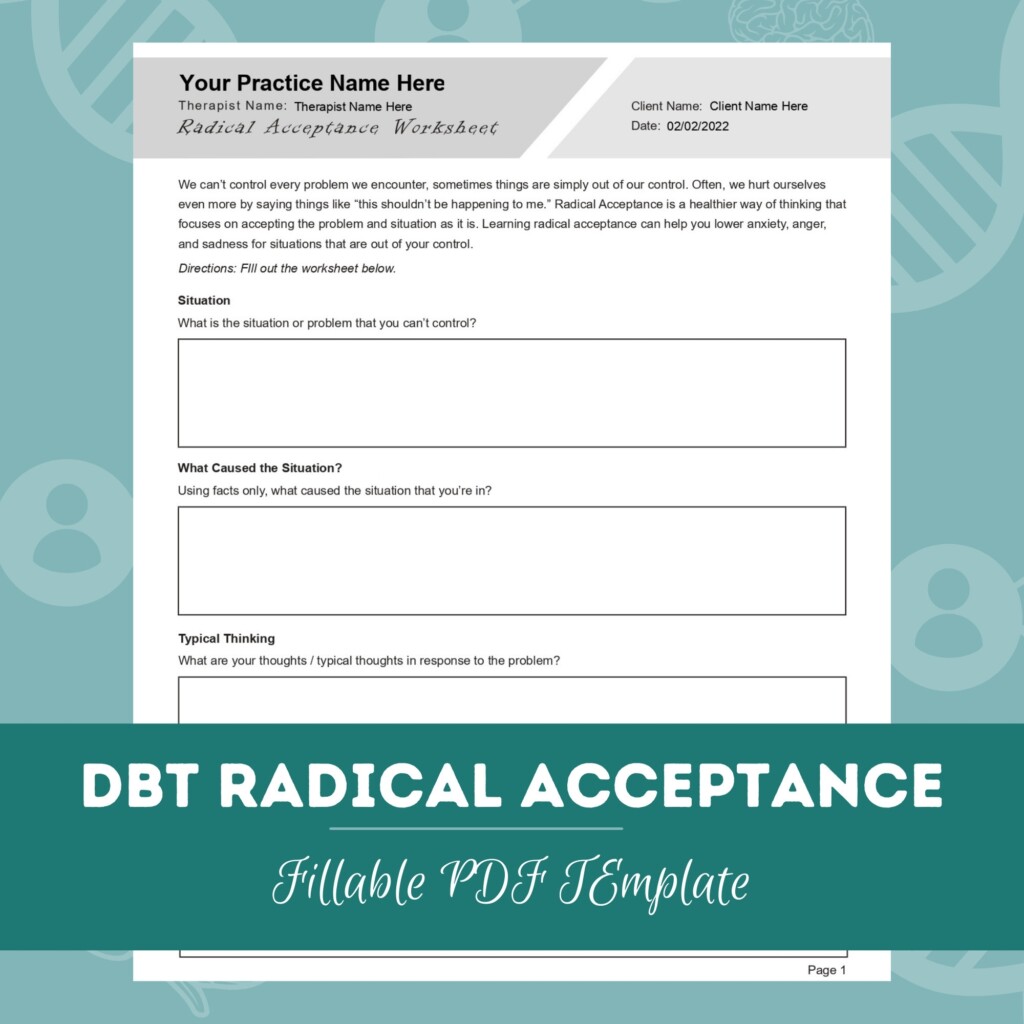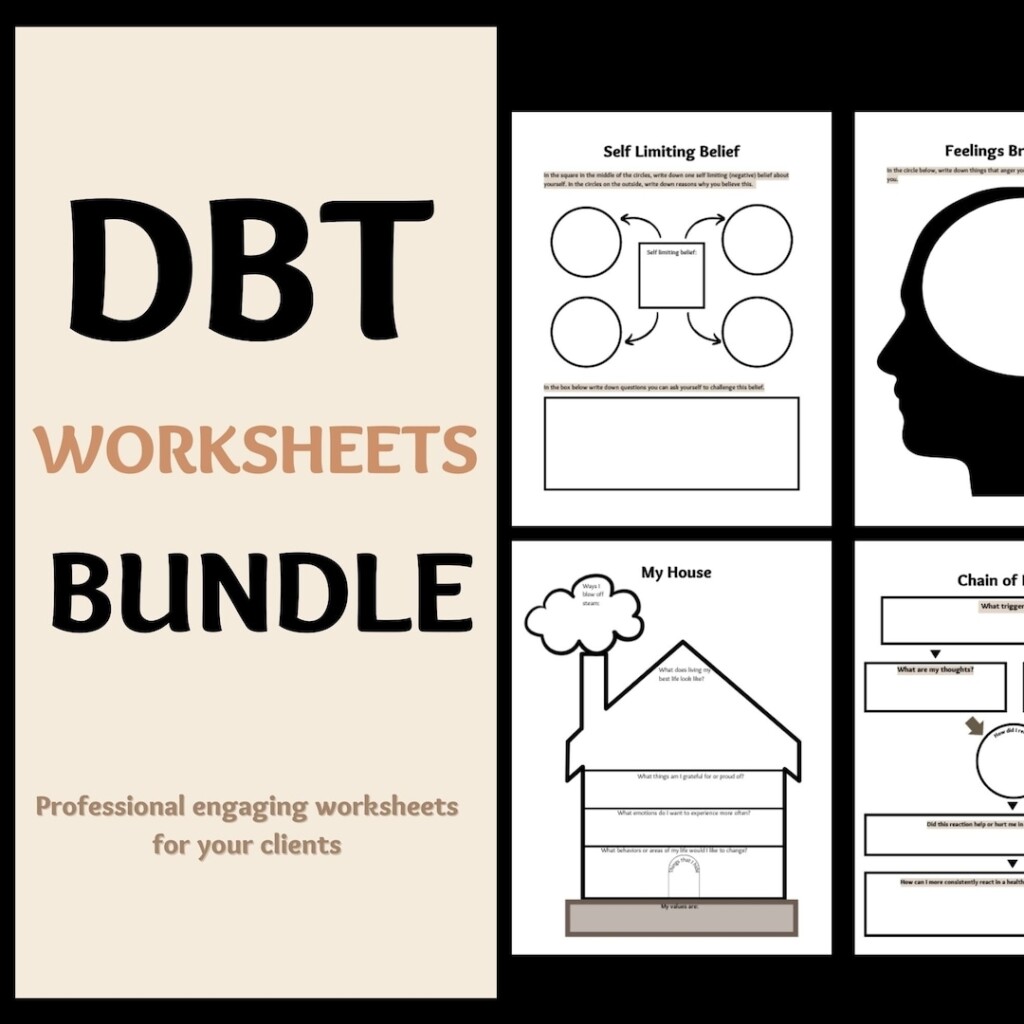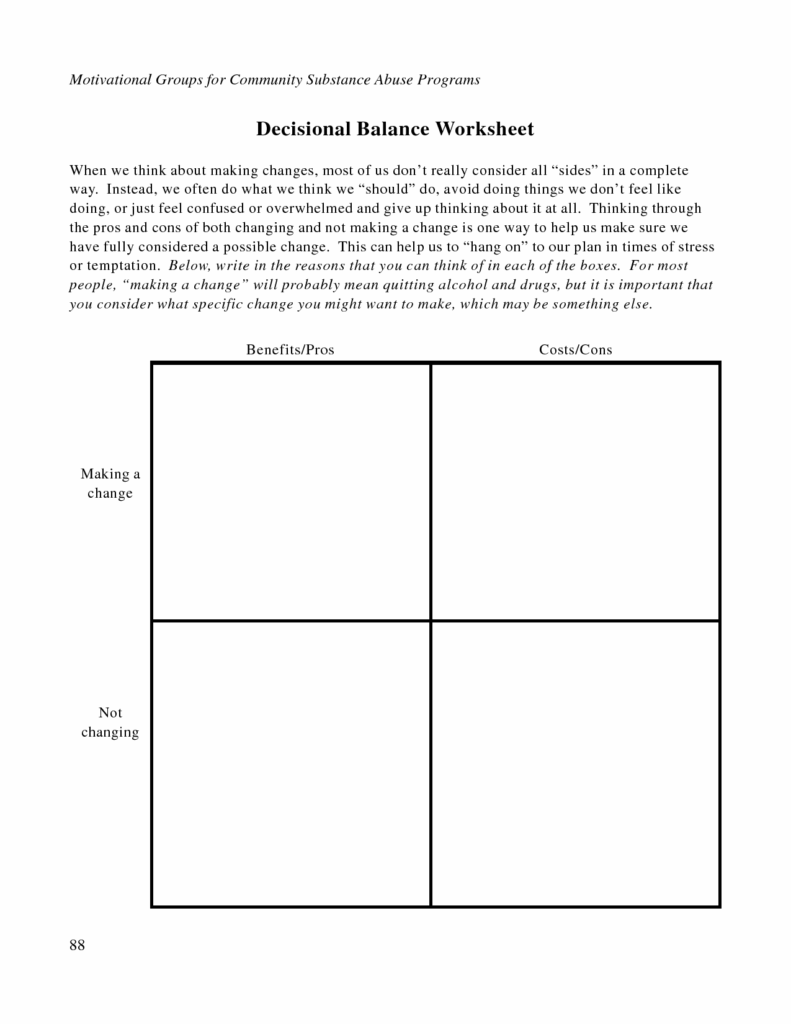Dialectical Behavior Therapy (DBT) is a type of cognitive-behavioral therapy that was originally developed to treat individuals with borderline personality disorder. However, it has since been adapted to help people struggling with a wide range of mental health issues, including depression, anxiety, and substance abuse.
DBT focuses on teaching individuals skills to cope with distressing emotions, improve relationships, and regulate their behavior. These skills are organized into four modules: mindfulness, distress tolerance, emotion regulation, and interpersonal effectiveness. Free printable DBT worksheets are a valuable resource for individuals undergoing DBT therapy, as they can help reinforce these skills outside of therapy sessions.
How to Use Free Printable DBT Worksheets
When using free printable DBT worksheets, it is important to first identify which skills you would like to work on. You can then choose worksheets that correspond to those skills and set aside time each day to practice them. For example, if you struggle with emotional regulation, you might choose worksheets that focus on identifying and managing your emotions.
It can be helpful to keep a journal or notebook to track your progress and reflect on how the skills are impacting your daily life. Additionally, consider sharing your worksheets with your therapist or a trusted friend or family member for feedback and support. Remember that DBT is a skill-based therapy, so consistent practice is key to seeing progress.
Where to Find Free Printable DBT Worksheets
There are many websites and resources that offer free printable DBT worksheets for individuals looking to enhance their DBT skills. Some reputable sources include psychologytools.com, therapistaid.com, and dbtselfhelp.com. These websites offer a variety of worksheets covering the different modules of DBT, as well as tips and guidance on how to effectively use them.
By incorporating free printable DBT worksheets into your daily routine, you can take an active role in your mental health treatment and work towards building a more fulfilling and balanced life. Remember to be patient with yourself as you navigate the challenges of therapy, and celebrate your successes along the way.
By utilizing these resources, individuals can support their mental health journey and continue to develop valuable skills for coping with life’s challenges.
